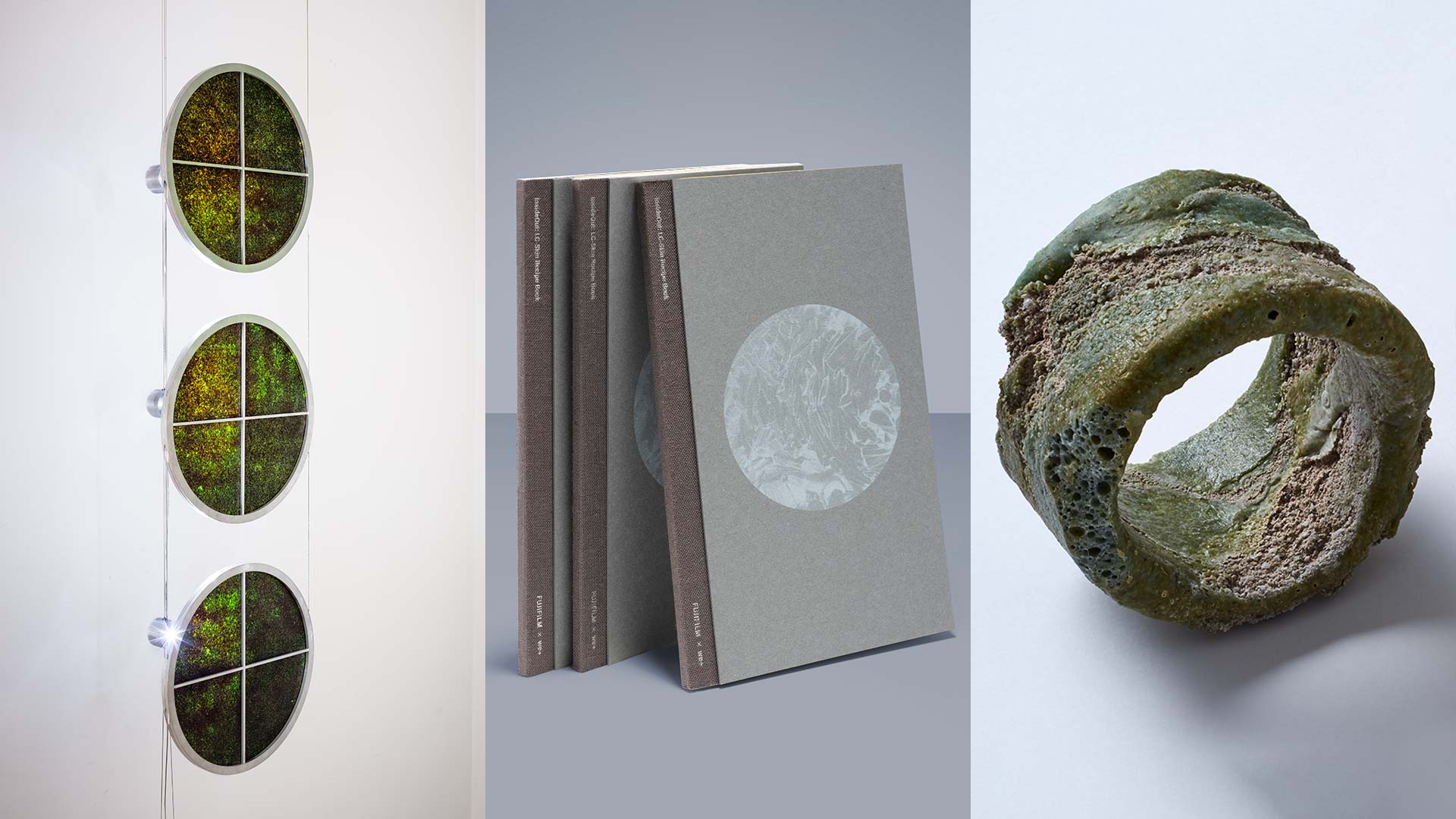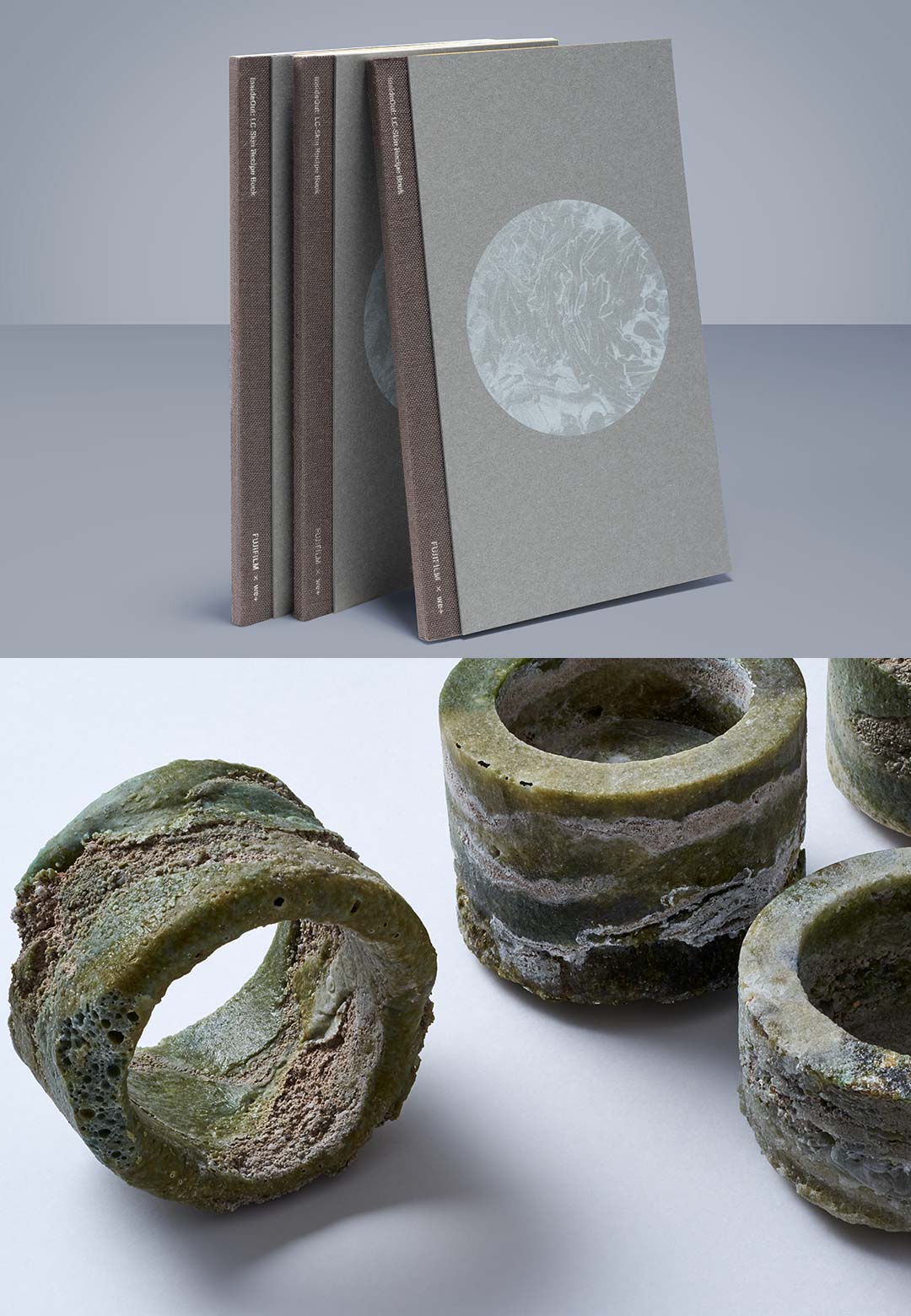Research and experimentation are fundamental ingredients of innovation—whether in palpable entities or intangible perspectives. These research-based ventures manoeuvre into spaces not necessarily uncharted, but often mundane and ignored. The simplicity, or the ubiquity of the solutions that emanate from the assays never fails to amuse minds that are habituated with innovation being synonymous with novelty. Material research in the field of design has cultivated an array of possibilities for alternative designs that relinquishes extant processes that are deemed standard to the detriment of the natural and social environment. Can embracing the diversity of values and context determine the future of craftsmanship and design?
Contemporary design studio based in Tokyo, Japan, We+ breathes life into new perspectives using an approach that revolves around research and experimentation. The studio, founded in 2013 by Japanese designers Toshiya Hayashi and Hokuto Ando, explores creative alternatives that incorporate a diversity of values that are more often than not overlooked in today’s society—interweaving natural and social environments into their designs. Harnessing a variety of skills from designers, engineers, researchers and writers, the studio contrives self-initiated projects—many of which have lately scrutinised contemporary manufacturing processes, waste production in cities and the relationship between humans and nature. “While modern design has grown within a socio-economic system of mass production and consumption, contemporary design striving for sustainability must become more conscious of its surrounding environments and the society, in order to present what is truly needed for the world of tomorrow,” Hayashi and Ando share. The studio’s recent projects dubbed Less, Light, Local, InsideOut and Remains further the designers’ inherent ethos to question the uncontested, and make the interrogation the origin of their innovation.
Less, Light, Local: reviving tradition in a contemporary way
Japan, the world’s largest consumer of seaweed, has a rich history of seaweed processing technologies that produce a wide variety of edible seaweeds—ITA NORI being one of them. This product that embodies the knowledge of the ancestors has, in recent years, encountered an arduous plight due to climate change, and changes in ocean currents and ecosystems. Less, Light, Local is a research project and a series of installations and lights that strive to embed new value in discarded and non-edible ITA NORI. Employing the Arakawa Grip technology, We+ brings out the two qualities of the seaweed—lightness and sustainability. The series draws inspiration from traditional Japanese techniques using local materials and techniques to create a simple product design. “We+ has developed lighting designs that show various expressions when exposed to light and is proposing new uses for the currently discarded, inedible seaweed sheets. The texture of each sheet of dried seaweed is different, so each piece has a different expression,” the product designers say.
InsideOut: A recipe book for new materials and ideas
InsideOut is a materials research project that delves into the potential of new materials derived from technologies owned by the Fujifilm Synthetic Organic Chemistry Laboratory. Born from a collaboration with the Fujifilm Synthetic Organic Chemistry Laboratory and Design Centre, the venture identifies many material properties through experiments and repeated expert discussions—compiling them into a recipe book. By visually capturing the charm of Fujifilm’s new materials and the surprises that sprouted throughout the process in a user-friendly way, this book aspires to foster an understanding among non-specialists and provide an opportunity for new ideas to emerge. Furthermore, by applying this material research approach to a range of materials, the project unearths new values that are otherwise overlooked through a limited perspective. “The project title InsideOut encapsulates the meaning of ‘from within to every corner.’ It involves transcending the boundaries of companies and specialised fields, engaging with a single material, and deepening research through dialogue,” the designers explain.
Reimagining the ‘Remains’
As a part of We+’s Urban Origin project, Remains delineates and reconstructs society’s complex relationships with materials and waste. The designers focus on Tokyo as a source of used materials and pursue the concealed value of waste in landfills. Barring recycled products, there are colossal amounts of residual waste such as glass ceramics, concrete and debris that flood the wastelands—but are they devoid of any potential? “This project explores new ways to utilise these materials that would normally be sent to landfills. We+ has discovered that when these materials are further milled, mixed and heated in a kiln, the glass waste can act as an adhesive to create new material,” comment the designers. This also leads to a possible scenario for humanity in the far future: a geological stratum of the Anthropocene era, representing what perhaps humans in the far future will discover when they excavate what today’s humans have sent to the landfills.
Kogei, a Japanese word that refers to handcrafted daily products that harmoniously amalgamate the beauty of materials, techniques and design. It can be traced further to ‘local production for local consumption,’ which characterises various facets of Japanese design and craft including woodcrafts, washi (traditional Japanese paper) and ceramics in different regions of Japan. Drawing from this concept that is traditional yet more relevant than ever, “We+, as a Tokyo-based design studio, learns from Kogei, Japanese crafts and aims to update them to present new possibilities for contemporary design.”






 Sign in with email
Sign in with email










What do you think?